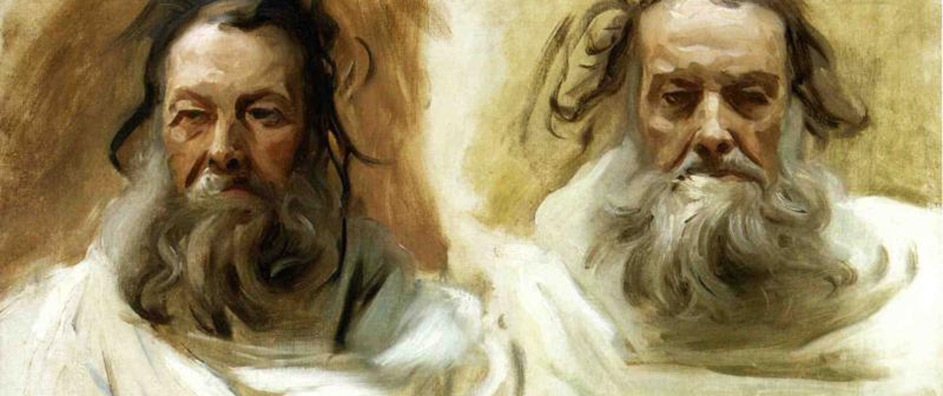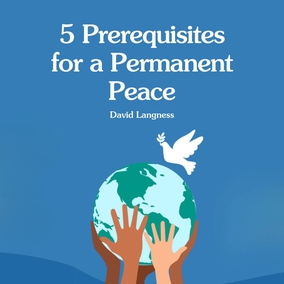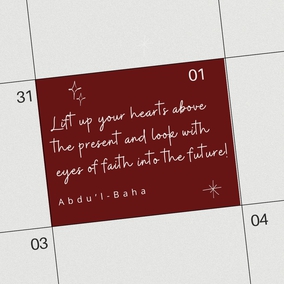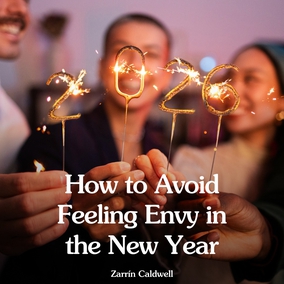The views expressed in our content reflect individual perspectives and do not represent the authoritative views of the Baha'i Faith.
No one can walk the road within us for us — but many guides exist.
Of course, everyone should exercise care and discretion when we choose our spiritual guides. In the time of the Buddha, as in the time of Christ, and in the time of Muhammad, and in our own day there were and are many guides, gurus and teachers who claim to have the sole truth, the true gospel.
Buddhist scripture says of them: “Fixed in their pet beliefs, these divers wranglers bawl ’Hold this, and truth is yours;’ ’reject it, and you’re lost’” (SutraNipata, in The Teachings of the Compassionate Buddha, E.A. Burtt, p. 37). Almost six hundred years later, Christ rebuked the religious guides of His day for teaching as doctrine sectarian commandments that divide people (c.f. Matthew 15:9, Mark 7:6). Six hundred years later ’Ali, the favored disciple of Muhammad, declared in a well-known hadith (tradition): “Knowledge is one point which the foolish have multiplied.”
The path to God is single, straight, simple, and embracing. The Buddha proclaimed: “There’s one sole Truth to know which bars men’s strife” and said of the priests “such a motley crowd of ’truths’ have they evolved.” These motley and often arcane truths divide people. The Buddha once said of true brahmins (religious scholars/priests):
No ’Brahmin true’ attains the goal by mere research; no partisan is he, nor brothersectary; all vulgar theories which others toil to learn he knows, but heeds them not. – ibid, p. 39.
Religious learning can be useful. But it has also been used as a destructive force to unnecessarily classify people into groups, and then to teach intolerance — often for the purpose of exalting the ego or the power of the classifiers. Some religious people harbor a deep suspicion of other religions, and have their own favorite scriptures to support this understanding. But these verses are often misapplied. Consider the following: As the Buddha approached His death, He gathered His chief disciple, Ananda, and His other disciples before Him and told them:
… O Ananda, be ye lamps unto yourselves. Rely on yourselves, and do not rely on external help. Hold fast to the truth as a lamp. Seek salvation alone in the truth. Look not for assistance to anyone besides yourselves. -The Gospel of Buddha, Chapter 93.

This is not an injunction to shun other religions that may arise thousands of miles and hundreds of years away in the future. If it were, then some of the most famous Buddhist teachers would be in trouble, because they often write with deep understanding and appreciation for other religions.
Rather, the Buddha advised his followers to gather around what they had been taught and not to disband and follow other wandering teachers. If they had not done this, Buddhism would have been lost. Similarly, Christ warned his followers of false prophets and teachers; and Muhammad did the same. The teachings of a Buddha, a Jesus, or a Muhammad are not for a day, they are for hundreds of years, and some portion of their teachings are eternal.
But there comes a time when religion must be renewed. And scripture provides us with scales to measure. When injustice becomes ascendant and morality declines, a new teacher appears whose fruits (teachings) are good. A true prophet is like a tree that bears good fruit (Matthew 7:17). The tree of a false prophet yields no lasting or good fruit. But what is the fruit? It is a teaching that embraces the ancient, pure, simple path of morality, justice, and communion with God’s eternal spirit. It brings people together and does not divide or shun others. All Founders of religion teach this salvation:
Man must be a lover of the light no matter from what day-spring it may appear. He must be a lover of the rose no matter in what soil it may be growing. He must be a seeker of the truth no matter from what source it come. Attachment to the lantern is not loving the light. Attachment to the earth is not befitting but enjoyment of the rose which develops from the soil is worthy. Devotion to the tree is profitless but partaking of the fruit is beneficial. Luscious fruits no matter upon what tree they grow or where they may be found must be enjoyed. The word of truth no matter which tongue utters it must be sanctioned. Absolute verities no matter in what book they be recorded must be accepted. If we harbor prejudice it will be the cause of deprivation and ignorance. The strife between religions, nations and races arises from misunderstanding. If we investigate the religions to discover the principles underlying their foundations we will find they agree, for the fundamental reality of them is one and not multiple. – Abdu’l-Baha, Foundations of World Unity, p. 15.
















Comments
Sign in or create an account
Continue with Googleor